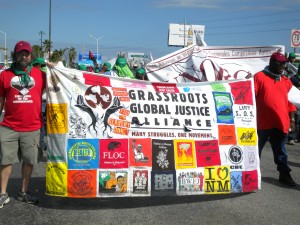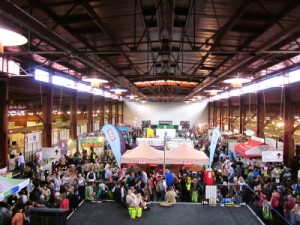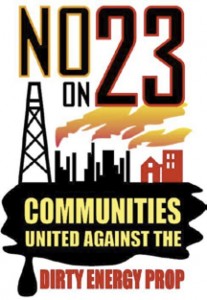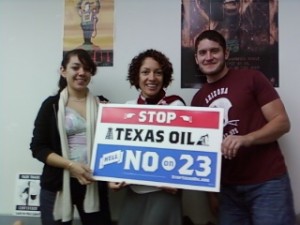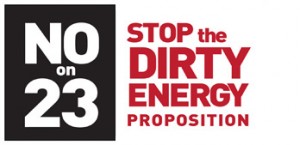CLEAN California Campaign Launches To Promote Clean Local Energy Access Now
A broad partnership of business, community and environmental groups has come together to accelerate the development of California’s clean energy economy. Global Exchange is a partner of the Clean Coalition which this week announced the launch of the CLEAN California Campaign. The CLEAN (Clean Local Energy Access Now) Campaign is promoting policies that will accelerate the implementation of clean energy projects by removing barriers to selling clean local energy to utilities and connecting these projects to the grid.
“I applaud the CLEAN California Partners for their leadership on creating clean energy jobs and protecting families from rising fossil fuel prices,” said Assemblymember Das Williams.
Along with Global Exchange, the CLEAN California Partners include the Clean Economy Network, the Los Angeles Business Council, the US Green Building Council California Chapters, the Galvin Electricity Initiative, the Local Clean Energy Alliance, the American Biogas Council, Pacific Environment and many other organizations, including private companies. The full list of Partners is available on the CLEAN California Campaign website: www.EnergyJobsNow.org.
“We need broad support to help California maintain its national leadership on climate policy action by driving the transition to a clean energy economy,” said former California Energy Commissioner John Geesman. “The CLEAN California Campaign will play a critical role in enacting policies that will create jobs, attract businesses and private investment dollars to our state, and set the foundation for our economic growth.”
Global Exchange Green Energy Director June Brashares said “Global Exchange is excited to be promoting the policies that will rapidly increase clean energy projects in a way that expands opportunity to allow more people to participate in producing clean energy and results in broadly distributed benefits.”
The CLEAN California Campaign promotes policies to meet Governor Jerry Brown’s call to install 12,000 megawatts of new renewable energy projects in California communities by 2020. The Campaign’s primary policy objectives are CLEAN Contracts (also know as Renewable Power Payments or Feed-In Tariffs) and interconnection reform.
“Ramping up local clean energy is the best way to accelerate the replacement of polluting power plants while avoiding risks to environmentally sensitive land,” said Rory Cox from Pacific Environment.
“CLEAN Programs result in new clean energy projects on the ground right now,” said Terry Tamminen, former Secretary of the California Environmental Protection Agency and Special Advisor to former California Governor Arnold Schwarzenegger. “CLEAN projects are integrated into existing buildings and disturbed lands in our communities, without delays for new transmission lines or major environmental reviews.”
“Clean Local Energy Accessible Now Programs are unparalleled in creating clean energy markets across the globe,” remarked Craig Lewis, the Executive Director of the Clean Coalition. “A CLEAN Program tailored for California will spur the development of our clean energy sector and fundamentally reform the process for connecting clean energy to the grid, in order to assure that clean local energy fulfills its tremendous potential.”
The San Francisco Green Festival hosted a session on “Accelerating the Transition to Clean Energy” where Panama Bartholomy of the California Energy Commission and Stephanie Wang of the Clean Coalition spoke about the potential of CLEAN Programs. Ms. Wang noted “The CLEAN initiatives will maximize clean energy job creation, attract billions of private investment dollars, boost state and local government budgets, and reduce electric bills.”



 NOW, IT’S TIME FOR YOU TO TAKE ACTION
NOW, IT’S TIME FOR YOU TO TAKE ACTION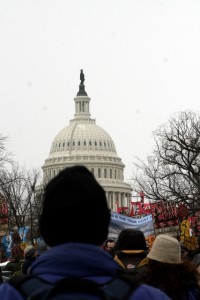
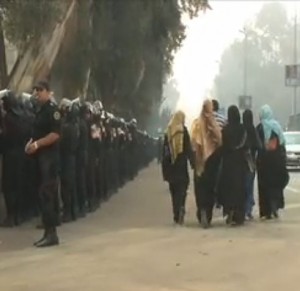
 the largest oil spill in American history, and oil from the spill continues to impact lives and livelihoods throughout the Gulf. Through this tragedy we have been reminded of the negative consequences of our dependence on dirty energy and our need to support clean alternatives for people and the planet. One year after the devastating Deepwater Horizon explosion, Global Exchange’s Energy Program Director, Antonia Juhasz,
the largest oil spill in American history, and oil from the spill continues to impact lives and livelihoods throughout the Gulf. Through this tragedy we have been reminded of the negative consequences of our dependence on dirty energy and our need to support clean alternatives for people and the planet. One year after the devastating Deepwater Horizon explosion, Global Exchange’s Energy Program Director, Antonia Juhasz, 